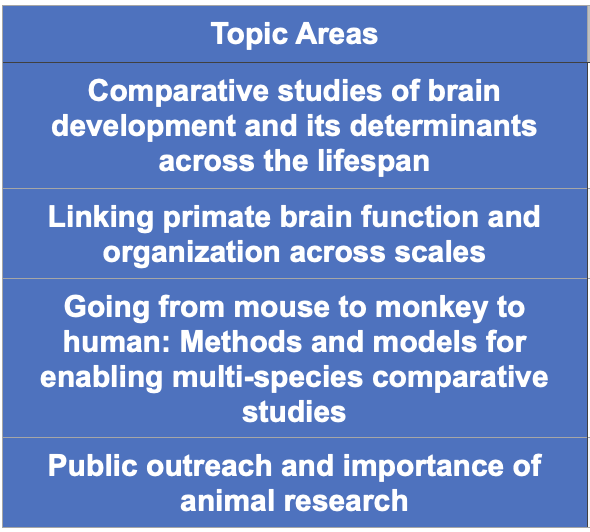GLOBAL COLLABORATION WORKSHOP
July 26-27, 2023 (9:30AM-1:30PM EDT), McGill University, Montreal, Quebec, Canada
Nonhuman primate (NHP) neuroimaging is a rapidly growing area of research that promises to massively re-scale comparative neuroscience, facilitating new discoveries and transforming translational research. This body of research has documented the utility of magnetic resonance imaging technologies to support in vivo examination of brain organization and function in the nonhuman primate. Recent efforts have not only demonstrated the ability to recapitulate key observations from postmortem examinations, but also provide novel insights into the organizational principles and functioning of the primate connectome, including when combined with causal neural system perturbation. However, technological and methodological advances are outpacing the data resources and research workforce available, and there is a growing need to establish links between global initiatives in humans and other species using cutting-edge approaches. Relatively few centers have the necessary facilities and capabilities, and each center obtains data in its own way or does not have the necessary bridges with human and other animal model communities, creating barriers to neuroscientific progress.
To accelerate the pace of advancement, the PRIMatE Data Exchange (PRIME-DE) and PRIMatE Resource Exchange (PRIME-RE) were launched to provide the data and tools needed to accelerate progress in NHP neuroimaging, and the PRIME-DE Global Collaboration Workshop (GCW) was created to promote a culture of collaboration and open science. We are proud to announce the third biannual GCW, now referred to as the PRIMatE Data and Resource Exchange (PRIME-DRE) Global Collaboration Workshop. The 2023 GCW will again place a particular focus on the generation of collaborative projects that bring together scientists from across the world. Consistent with its tradition the PRIME-DRE GCW will employ a workshop format that consists of a series of breakout sessions and general discussions across four key topic areas.



